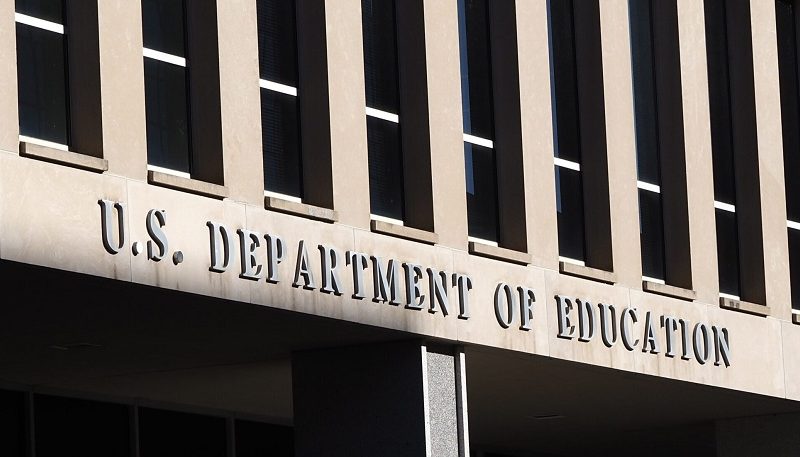Salem, OR – A coalition of 21 Democratic attorneys general has filed a lawsuit against the Trump administration over the U.S. Department of Education’s plan to cut more than 1,300 employees. The legal action, initiated on Thursday, asks the U.S. District Court for the District of Massachusetts to block the “reduction in force” (RIF) and halt President Donald Trump’s broader directive to dismantle the Education Department.
The lawsuit, which includes the attorneys general of states like Oregon, California, New York, and Illinois, argues that the mass layoffs will severely damage the Education Department’s ability to perform its key responsibilities, ultimately harming the educational systems in their respective states. Oregon Attorney General Dan Rayfield, one of the plaintiffs, emphasized the potential impact on vulnerable students.
“Cutting the Department of Education isn’t just a policy change, it’s a direct hit to our kids and their futures,” Rayfield said in a statement. “If the president gets his way, the most vulnerable students will suffer the most, and that’s something we can’t let happen.”
The U.S. Education Department announced the layoffs earlier this week, signaling a major reduction in its workforce. According to department leaders, the cuts are part of a strategy to streamline operations and reduce inefficiencies within the agency. However, critics argue that the move threatens the agency’s ability to carry out its fundamental functions, such as administering federal student aid, enforcing civil rights protections, and ensuring a free and appropriate education for students with disabilities under the Individuals with Disabilities Education Act (IDEA).
The attorneys general argue that the cuts are not based on any thorough analysis of the department’s efficiency but instead reflect the administration’s ongoing opposition to the very existence of the Department of Education. The lawsuit contends that these actions will result in “immense damage” to public education, particularly in states that rely on federal support for their schools, including those in rural areas and those serving students with disabilities.
Kris Mayes, Arizona’s Attorney General, voiced strong concerns about the cuts, saying that they would have a particularly devastating effect on rural students and those with learning disabilities. “This is part of a deliberate effort to dismantle public education in this country,” Mayes said. “It is going to hurt students, families, and schools, especially in rural areas that rely on federal support.”
In response to the lawsuit, Madi Biedermann, a spokesperson for the Education Department, defended the layoffs, stating that they were implemented in compliance with all applicable laws and regulations. According to Biedermann, the cuts are “strategic, internal-facing” and will not directly impact students or families. She emphasized that key functions, such as student aid and civil rights enforcement, would remain unaffected.
Despite these assurances, critics remain skeptical. An analysis by the nonprofit Education Reform Now, which advocates for more funding for education, suggests that the layoffs would significantly reduce staffing in critical areas like the Office for Civil Rights, the Office of Federal Student Aid, and the Institute of Education Sciences—units that are vital to the department’s core responsibilities.
The Department of Education has been a frequent target of the Trump administration’s efforts to reduce federal spending. Secretary Linda McMahon has openly stated that the layoffs are just the first step toward shutting down the agency entirely, a goal that aligns with Trump’s long-standing opposition to federal involvement in education. Trump’s 2016 campaign included promises to return more control of education to the states, and he has repeatedly criticized the Department of Education as bloated and inefficient.
While the department insists that it can continue to fulfill its legal obligations despite the cuts, critics, including Democratic state leaders, argue that the reduction in staff will undermine the agency’s ability to meet its mission. The lawsuit is poised to continue as the future of the Education Department remains uncertain amid ongoing efforts by the Trump administration to curtail its power and influence.











